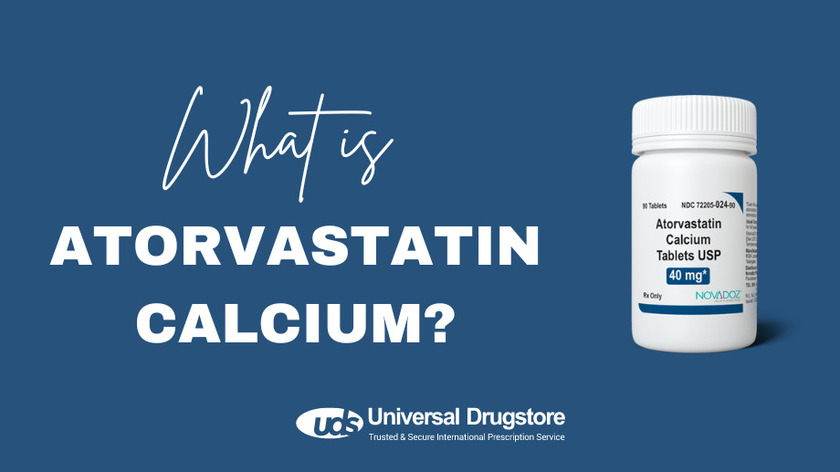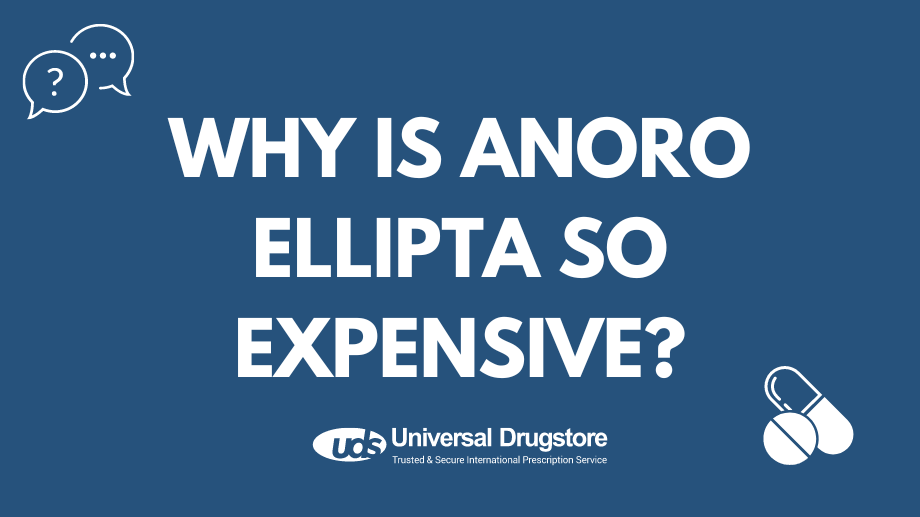Atorvastatin calcium, which is marketed under the brand name Lipitor, is an inhibitor of HMG-CoA reductase (statin) that works to slow down the body’s production of cholesterol. In turn, it reduces the risk of heart attacks, strokes, and angina (chest pain) in patients with or without coronary heart disease, type 2 diabetes, primary hyperlipidemia, homozygous familial hypercholesterolemia, and a variety of other conditions. It can be used with adults and pediatric patients ten years of age or older.
How does atorvastatin calcium work?
Atorvastatin calcium blocks the enzyme, or protein, in your liver that makes cholesterol. This reduces low-density lipoprotein (LDL), known as the “bad” cholesterol levels in your body, and raises the high-density lipoprotein (HDL), or the “good” cholesterol levels in your body. It also lowers triglycerides, which are a type of fat in your body. Similar to other statin drugs, atorvastatin calcium will help protect your heart and blood vessels and reduce your risk of the fatal and non-fatal outcomes of high cholesterol levels.
What doses of atorvastatin calcium are available?
The exact dosage your healthcare provider will prescribe will depend on which disease or condition atorvastatin calcium is treating. Tablets come between 10 mg to 80 mg and are usually taken once daily. The standard starting dosage for adults is 10 mg to 20 mg daily. However, tablets come in 40 mg and 80mg strengths as well. Pediatric patients should start at 10 mg once daily, with the maximum recommended dose of 20 mg once daily.
How do you use atorvastatin calcium?
Be sure you follow all directions given by your healthcare provider and read all drug information on the medication guide or instruction sheets. Atorvastatin calcium is a pill that is recommended to be taken at the same time every day. It can be taken with or without food.
If you miss a dose, do not take two doses at once. Take the missed dose as soon as you remember unless 12 hours have passed. If that happens, simply skip that dose and take the next one at your normal time.
Often, you will be advised to eat a healthy diet, exercise regularly, and drink limited alcohol throughout your treatment. Make sure to speak to your doctor about specifics you should follow for your diet and how often you will need to monitor your cardiovascular (heart) health and liver function through regular blood tests.
What are the side effects of atorvastatin calcium?
The most common side effects of atorvastatin calcium in clinical trials compared to placebo include:
-
Diarrhea
-
Common cold symptoms (nasal congestion, runny nose, and sore throat)
-
Pain in extremity
-
Urinary tract infection
-
Muscle and joint pain
Rarely, atorvastatin calcium may cause some serious side effects, including:
-
Severe muscle pain, muscle weakness (myopathy), and muscle damage (rhabdomyolysis). Your chances of muscle problems will increase if:
-
You are 65 years or older
-
Have thyroid problems that are not controlled
-
Have kidney problems
-
Drink large amounts of grapefruit juice
Speak to your doctor immediately if you experience signs of muscle problems, including:
-
Dark brown urine
-
Fever
-
Severe muscle pain or weakness
-
Tiredness
-
-
Worsening liver problems or liver failure. Speak to your doctor immediately if you experience:
-
Swelling of your stomach
-
Yellowing in the whites of your eyes or your skin
-
Brown or dark urine
-
Confusion
-
Loss of appetite
-
-
Serious allergic reactions. Speak to your doctor immediately if you experience:
-
Swelling of the lips, face, tongue, and/or throat
-
Difficulty breathing or swallowing
-
Hives
-
-
Increased blood sugar levels
-
Make sure you are following a healthy diet in conjunction with your doctor’s prescription.
-
Contact your healthcare professional for medical advice about any possible adverse effects you experience while taking atorvastatin calcium. You can report your adverse effects to the FDA at 1-800-FDA-1088 or www.fda.gov/medwatch.
Atorvastatin calcium drug interactions
When atorvastatin calcium is taken with other prescription drugs, over-the-counter medications, vitamins, and supplements, it may change how they work or increase the frequency or severity of side effects. Some drug interactions with atorvastatin calcium include:
-
Colchicine
-
Rifampin
-
Ritonavir
-
Specific antibiotics, including:
-
Clarithromycin
-
Erythromycin
-
-
Other cholesterol-lowering medications, including:
-
Gemfibrozil
-
Niacin
-
-
Antifungal drugs, including:
-
Ketoconazole
-
Itraconazole
-
Atorvastatin calcium precautions
You should be sure that your healthcare provider is aware of all your medical conditions, including if you:
-
Drink more than two glasses of alcohol daily
-
Have liver problems or liver disease
-
Have unexplained muscle aches or weakness
-
Have thyroid problems
-
Have kidney disease
-
Have diabetes
-
Have had a stroke
-
Are pregnant, plan to become pregnant, or are breastfeeding.
-
If you become pregnant, stop treatment and call your doctor right away. Atorvastatin calcium might harm your unborn baby.
-
You should not breastfeed and take atorvastatin calcium. Speak to your doctor about which is best for you.
-
Is there a generic available for atorvastatin calcium?
Atorvastatin calcium is the generic form of the brand name Lipitor (tablet) and Atorvaliq (liquid suspension). All include the active ingredient atorvastatin calcium.
How do you store atorvastatin calcium?
Atorvastatin calcium should be stored at room temperature (68°F - 77°F; 20°C-25°C). Keep it away from moist or damp areas and high temperatures.
Related medications
Sources
National Cancer Institute: https://www.cancer.gov/publications/dictionaries/cancer-terms/def/atorvastatin-calcium
PI Information: https://www.accessdata.fda.gov/drugsatfda_docs/label/2009/020702s056lbl.pdf
GoodRx: https://www.goodrx.com/atorvastatin/what-is#side-effects
Lipitor: https://www.lipitor.com/
Medical News Today: https://www.medicalnewstoday.com/articles/atorvastatin-oral-tablet#side-effects
National Library of Science: https://www.ncbi.nlm.nih.gov/books/NBK430940/#:~:text=(HDL)%20concentrations.-,FDA%2Dapproved%20statins%20include%20atorvastatin%2C%20rosuvastatin%2C%20simvastatin%2C%20pravastatin,adjunct%20to%20diet%20and%20exercise.









